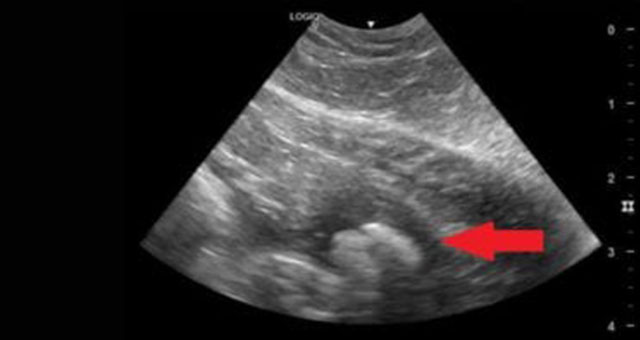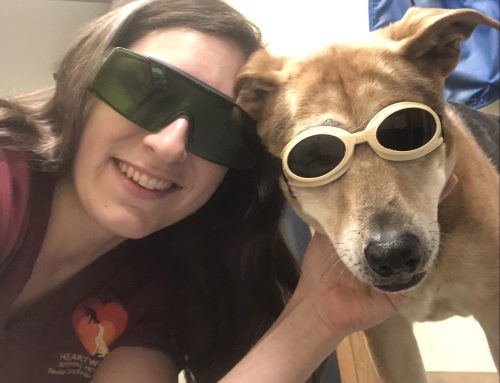
Desi, a beautiful Ragdoll, came into Heartwood Animal Hospital for the first time this summer for a wellness exam and vaccine updates. Desi’s mom had mentioned that she also had the occasional drop of blood in her urine that she had mentioned to her previous veterinary clinic, but her urine exam was normal. Using our ultrasound, we were able to do a fast, stress free scan of Desi’s bladder and found a large bladder stone. This stone had likely been there for several months and was a hidden source of constant irritation and pain in her abdomen. Desi underwent surgery for removal of the stone and her mom reports that she has been doing great ever since!
Ultrasound works by using sound waves that aren’t audible to human or pet’s ears. These sound waves will bounce back, or echo, off of the different tissues in the body. The ultrasound machine will map out a black and white image based on the echo in order to evaluate the internal organs of the abdomen or chest. The advantages of ultrasound are that:
- It is completely safe and no radiation is used
- The procedure rarely causes stress to pets
- Anesthesia or other medications aren’t required for diagnostic images
- It is more affordable then MRI or CT scans
- It allows for more precise organ evaluation than x-rays by themselves
- Ultrasound can help guide biopsies instead of having to go to surgery

After having our ultrasound for two years now, it is tough to imagine practicing veterinary medicine without one. Desi is just one of several cases where diseases have been detected on routine scanning that otherwise would have gone unnoticed. In addition to bladder stones, ultrasound can detect:
- Tumors and certain types of cancers
- Pregnancy and number of fetuses 3-4 weeks after conception
- Heart size and function
- Foreign bodies in stomach/intestines
- Kidney disease staging
- Signs of infection
-Dr. James Murray






Leave A Comment